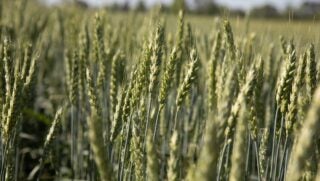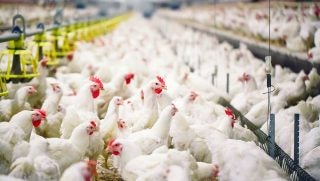JBS USA is temporarily closing its Greeley, Colorado, beef production facility until April 24, 2020, and will pursue multiple additional efforts to support the fight against coronavirus in the surrounding county. The company is the largest employer in Weld County with more than 6,000 employees.
The Greeley beef facility will wind down operations over the next couple of days with a diminished staff to ensure existing product in the facility can be used to support food supply needs. In partnership with the Colorado Department of Public Health and Environment and the Weld County Department of Public Health and Environment, the company will advise its Greeley beef team members to shelter in place in accordance with Colorado Governor Jared Polis’ stay-at-home order until returning to work. The company will continue to pay its employees during the plant closure.
“While the Greeley beef facility is critical to the U.S. food supply and local producers, the continued spread of coronavirus in Weld County requires decisive action,” said Andre Nogueira, JBS USA CEO. “As a leading member of this community, we believe we must do our part to support our local health professionals and first responders leading the fight against coronavirus.”
Weld County is currently experiencing a growing outbreak of COVID-19, with nearly 740 cases to date. To further aid the community’s response to the local outbreak, the company will provide funding to replenish personal protective equipment for first responders and essential city workers, including protective suits for Greeley fire, police, and transit officials; provide funding for antibody testing for first responders; and donate $90,000 to the Greeley Personal Isolation Facility to house recovering COVID patients and free up critical hospital space for critically ill individuals.
Gov. Jared Polis said, “Colorado’s beef industry is a critical part of our state’s economy, which is why we continue working closely with the Weld County public health department to ensure the safety of the JBS workers and get the plant open as soon as is safe in order to protect the food supply.”
In addition, the company will also purchase and provide up to 1,000 COVID-19 test kits for low-income and uninsured Weld County residents who require testing. This does not include the previously announced $1 million in test kits purchased by JBS USA. Rather than test its team members, the company has decided to take more aggressive action and self-quarantine Greeley beef employees until plant reopening.
“The closure of packing plants during this crisis will have an impact on cattle and beef prices,” the National Cattlemen’s Beef Association said. “Plant closures or slow-downs have significant regional and national implications that will ripple through the marketplace at a time when cattle producers are already suffering from market uncertainty and economic hardship. Every member of the beef supply chain relies on processing plants operating daily to keep product moving. America’s cattlemen and cattlewomen are hopeful that any beef processing plants which have been slowed or closed as a result of the COVID-19 outbreak return to full operation as quickly as possible.
To further support the community, JBS announced it is donating $50,000 to the United Way of Weld County to support the production of masks for local residents and other COVID-19 relief efforts. Masks have been identified as an effective preventative measure against spreading the virus and Gov. Polis has encouraged all Coloradans to wear masks while in public.
In response to the growing need for food during this critical moment, the company also committed $100,000 to the Weld County Food Bank to provide food to local residents in need.
JBS USA operates more than 60 meat, poultry and prepared foods facilities across the United States. The Greeley beef production facility is the second JBS USA plant to temporarily close, joining the Souderton, Pennsylvania, beef production facility. The company has also experienced increased absenteeism in a few other plants, but continues to operate the majority of its facilities across the country at or near capacity, in an effort to continue providing food for Americans.


